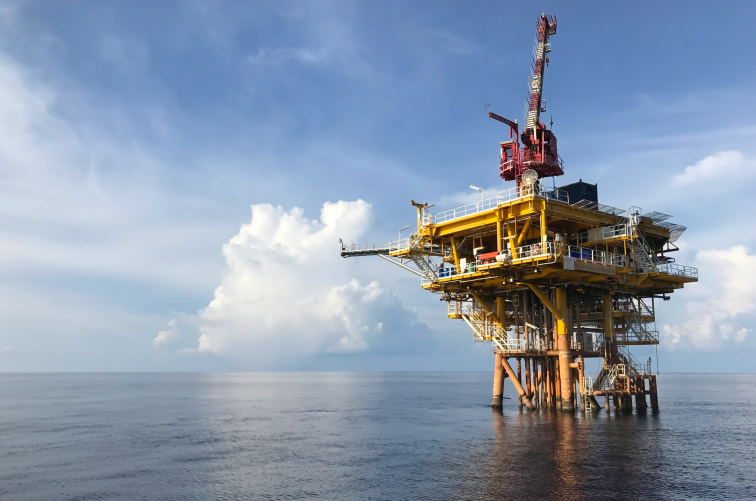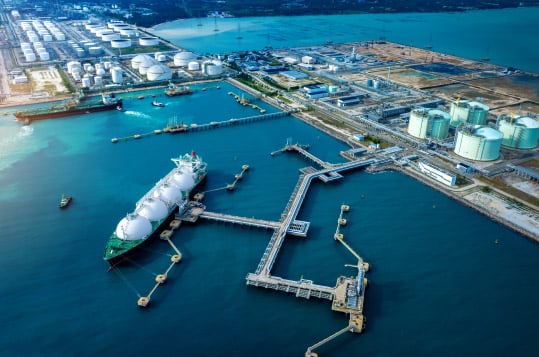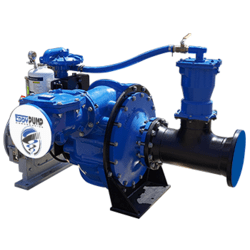Application of EDDY Pump in Oil and Gas Refinery



Application of Our Slurry Pumps in Oil and Gas Refinery

- Crude Oil Transfer: Slurry transport pump transfers crude oil from storage tanks to processing units. They can handle the presence of sand, sediment, and other abrasive particles that might be present in crude oil.
- Hydrotransport: Slurry transport pump transports oil sands or other heavy crude oil feedstocks, which often contain a high concentration of solid particles, through pipelines from extraction sites to processing facilities.
- Catalyst Circulation: In catalytic cracking units, slurry pumps circulate catalyst particles suspended in oil to facilitate cracking, breaking larger hydrocarbon molecules into lighter products.
- Waste Sludge Handling: Heavy-duty slurry pump assists in transporting waste sludges and sediments generated during various refining processes, such as desalting, distillation, and filtration, to waste treatment or disposal facilities.
- Sour Water Stripping: An abrasive handling pump is used in sour water stripping units to transfer corrosive sour water containing hydrogen sulfide (H2S) and ammonia (NH3) to minimize environmental impact and comply with regulatory requirements.
- Fluid Catalytic Cracking (FCC) Slurry Handling: In FCC units, a slurry transport pump is integral for transporting the catalyst slurry between different stages of the cracking process.
- Tar Sands Processing: An abrasive handling pump plays a role in the extraction and processing of bitumen from tar sands, where the abrasive nature of the mixture necessitates specialized pumping solutions.
- Pipeline Cleaning: A high solids pump can be used for pipeline cleaning operations, where they help remove debris and sediment buildup from the interior of pipelines to maintain optimal flow rates.
- Tank Bottom Sludge Removal: Slurry pumps are employed to remove settled solids and sludge from the bottoms of storage tanks to ensure efficient storage capacity and prevent contamination.
- Desanding: Slurry pumps assist in separating sand and other particulates from produced fluids, enhancing the quality of the end products and protecting downstream equipment.
- Bottom Ash Handling: In some refineries, mining slurry pumps handle and dispose of bottom ash generated from incineration processes.
CALL FOR SALES OR SUPPORT
If you need help with Pump Selection, Sales or Engineering Support
Call 619-345-5446

Application of EDDY Pump’s Hydraulic Dredging in Oil and Gas Refinery

- Sludge and Sediment Removal: Sediment removal equipment removes accumulated sludge, sediment, and debris from various water storage tanks, settling ponds, and wastewater treatment facilities within the refinery. This process helps maintain optimal storage capacity, prevent contamination, and ensure efficient water treatment processes.
- Desilting Ponds: Refineries often use desilting ponds to capture and settle suspended solids from runoff water or other sources. Hydraulic dredgers can be deployed to periodically clean and clear these ponds, improving their effectiveness in solids removal.
- Dredging Navigation Channels: Water bodies such as canals, channels, and docks in the refinery area can become clogged with sediment and debris over time. Hydraulic dredging ensures that these waterways remain navigable, allowing for the safe passage of vessels and facilitating the transportation of materials.
- Cooling Water Intake Maintenance: Hydraulic dredging operations prevent the buildup of sediment and debris in cooling water intakes, which can hinder the heat exchange process and reduce the efficiency of cooling systems.
- Hydrocarbon Product Recovery: In the event of accidental spills or leaks, slurry pump dredge can recover spilled hydrocarbon products from water bodies, mitigating environmental damage and facilitating cleanup efforts.
- Emergency Response: Hydraulic dredging equipment can be rapidly deployed in emergencies, such as containment of oil spills, to remove spilled oil and prevent its spread quickly.
- Environmental Compliance: Refineries must adhere to environmental regulations and guidelines. Hydraulic dredging helps refineries meet these requirements by effectively managing and minimizing the impact of pollutants and contaminants in water bodies.
- Maintenance of Water Treatment Infrastructure: Sediment removal equipment is used to clean and maintain critical water treatment infrastructure, including clarifiers, sedimentation tanks, and settling basins, ensuring that these systems operate efficiently.
- Refinery Expansion and Construction: During refinery expansion or construction projects, hydraulic dredging equipment may be needed to excavate and shape water bodies or infrastructure foundations to meet project requirements.
- Tank Cleaning: In cases where sludge or sediment accumulates at the bottom of storage tanks, a slurry pump dredge can assist in removing these materials, allowing for more effective tank cleaning and maintenance.




